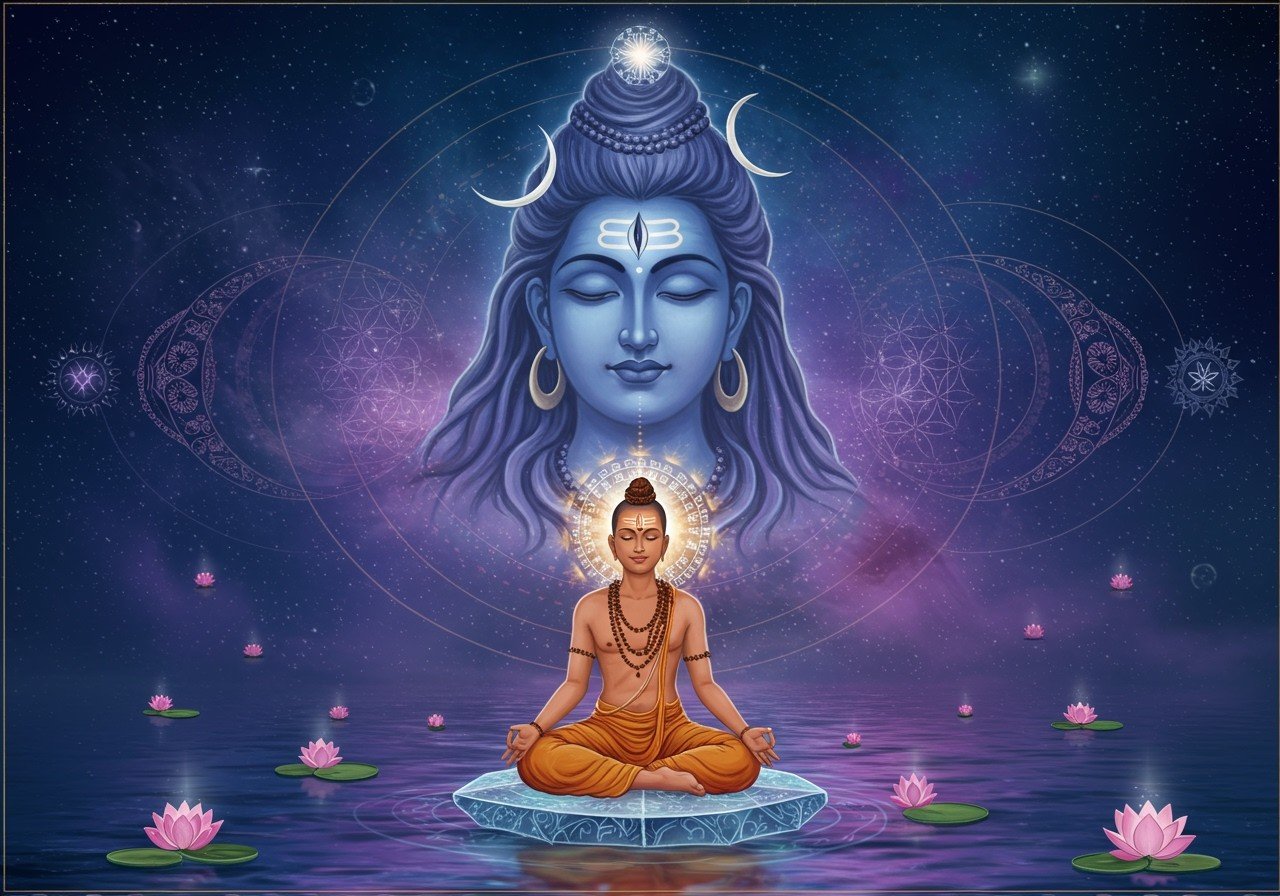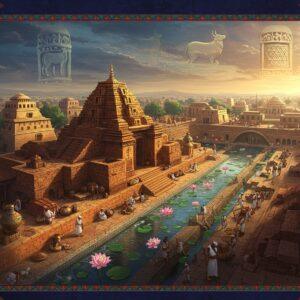
Dive into the profound wisdom of Pratyabhijna Hridayam, a cornerstone of Kashmir Shaivism. This enlightening text guides individuals toward recognizing their inherent divine nature. Composed by the sage Kshemaraja in the 11th century CE, it beautifully reflects the teachings of his guru, Abhinavagupta. This exploration delves into its deep philosophy and historical significance, unveiling its timeless wisdom for modern seekers.
What is Pratyabhijna Hridayam?
The Heart of Recognition
Pratyabhijna Hridayam, translating to “The Heart of Recognition,” is a concise yet profound treatise. It comprises 20 aphorisms (sutras) that encapsulate the core teachings of the Pratyabhijna philosophical system within Kashmir Shaivism. This text serves as a gateway to understanding this rich tradition, emphasizing the recognition of one’s true self as universal consciousness. Unlike many philosophical texts, it prioritizes direct experience over theoretical knowledge, making it accessible to all seekers.
Exploring the Pratyabhijna Hridayam Text
Structure and Significance
The aphoristic structure of the Pratyabhijna Hridayam encourages a meditative approach rather than mere intellectual study. Kshemaraja’s insightful commentaries provide essential context and deeper understanding, illuminating the path for practitioners. The book functions as both a spiritual guide for those seeking self-realization and a philosophical work for scholars exploring the intricacies of Kashmir Shaivism.
You can learn more about Meditation and Mantras here.
Key Teachings and Concepts
Core Philosophical Ideas
- Spanda (Vibration): This concept represents the dynamic pulse of consciousness, the vibrant energy that permeates the universe and manifests in all forms. It is the creative power of the divine, constantly in motion.
- Abhasavada (Doctrine of Reflection): This doctrine describes the world as a reflection of divine consciousness, like a mirror reflecting the sun. It emphasizes the interconnectedness of all things, highlighting the divine presence within the manifest world.
- Anuttara (Ultimate Reality): This signifies the ultimate reality, the recognition of which leads to liberation from limitations. It is the state of oneness with the divine, transcending duality and realizing one’s true nature as Shiva.
Accessing Pratyabhijna Hridayam
Digital Accessibility and Reliable Sources
Pratyabhijna Hridayam is readily available in digital formats like PDF, ensuring global accessibility. Reliable translations and commentaries are crucial for preserving the depth and authenticity of the teachings. For an accurate and enriching engagement with this text, seeking authentic versions from reputable sources is essential. Explore the various versions and find one that resonates with your journey.
Practical Application in Daily Life
Integrating Teachings for Self-Realization
The wisdom of Pratyabhijna Hridayam can be integrated into daily life through practices such as meditation, contemplation, and self-inquiry. These practices cultivate spiritual growth, leading to self-realization and a deeper connection with one’s true nature. Through consistent application, individuals can experience the profound peace and unity with the divine that this philosophy illuminates. Check poojn.in for Bel malas, Tulsi malas, and Shiva Lingams which can further enhance your meditation experience.
Read more about mantra chanting here.
Poojn.in: Supporting Your Spiritual Journey
Authentic Ritual Items and Spiritual Products
Poojn.in, India’s largest cultural goods and services store, offers a wide range of authentic products to support your exploration of Pratyabhijna Hridayam. Enhance your spiritual practices with our carefully curated collection, including:
- Pure copper and brass puja items to maintain the sanctity of your rituals.
- Traditional meditation cushions and asanas for comfortable and supportive practice.
- Premium quality dhoop and incense to create a serene atmosphere during study and meditation.
- Sacred texts and spiritual books from verified publishers for deeper learning.
- Puja thalis and accessories crafted according to Vedic specifications.
Visit www.poojn.in to discover our complete collection and enrich your spiritual journey. All items are delivered with quality assurance and secure packaging to preserve their sanctity.
Embracing the Essence of Recognition
A Path to Deeper Meaning and Connection
Pratyabhijna Hridayam serves as a timeless guide for those seeking truth and self-awareness. Its profound teachings inspire us to recognize the divine spark within ourselves and the interconnectedness of all beings. By integrating these principles into our lives, we cultivate a sense of unity, peace, and deeper meaning. This journey of self-recognition enriches our spiritual practice and enhances our everyday experiences, leading us toward a more fulfilling and connected life.
FAQs: Clarifying Pratyabhijna Hridayam
What is Pratyabhijna Hridayam? Pratyabhijna Hridayam, meaning “The Heart of Recognition,” is a fundamental text within Kashmir Shaivism. It explores the recognition of one’s true self as identical to the supreme consciousness, Shiva.
Who wrote Pratyabhijna Hridayam? It was authored by Rajanaka Kshemaraja, an 11th-century Kashmiri philosopher and disciple of Abhinavagupta.
Why is it important? This text provides a concise and accessible introduction to the complex philosophy of Pratyabhijna, offering a path to self-realization and liberation.
Are English translations available? Yes, several English translations and commentaries are available, making the text accessible to a wider audience. Check poojn.in for more about vedas.
Where can I find the book? The Pratyabhijna Hridayam is available in various formats, including print and digital versions, from online retailers and bookstores specializing in spiritual and philosophical literature.
How does it relate to daily life? The teachings encourage self-awareness, mindfulness, and the recognition of the divine in all aspects of life, promoting a more meaningful and fulfilling existence.
What themes does it cover? Key themes include consciousness, self-recognition, the nature of reality, liberation (moksha), and the relationship between the individual self and the supreme consciousness (Shiva). Poojn.in has more content on Hinduism and its traditions.


